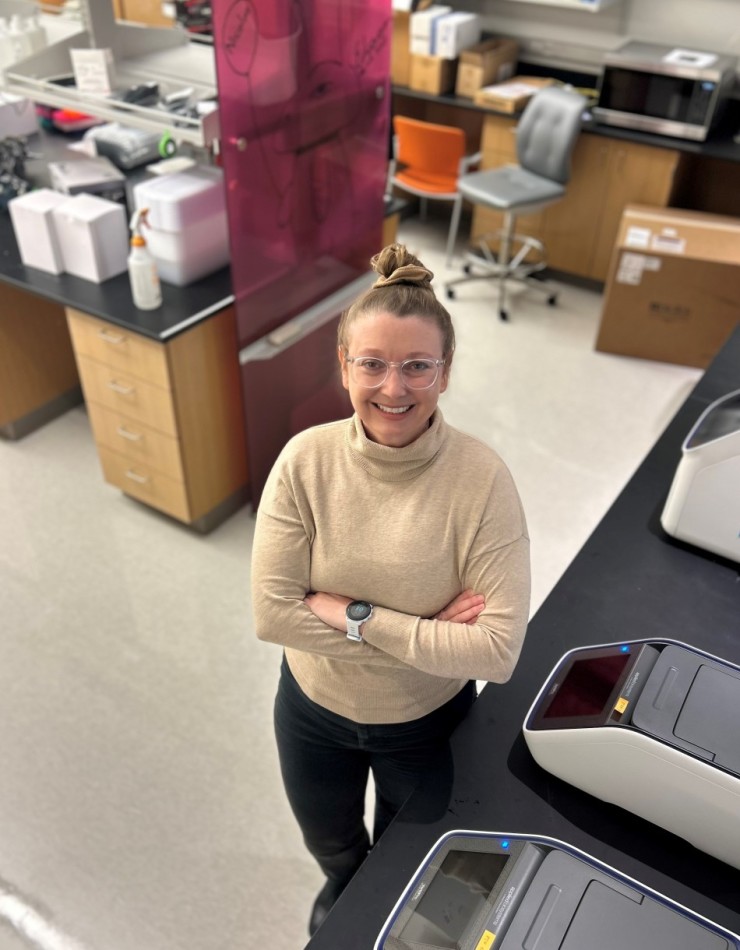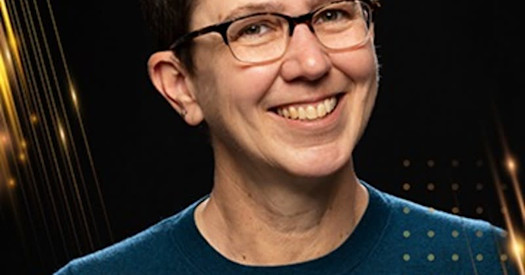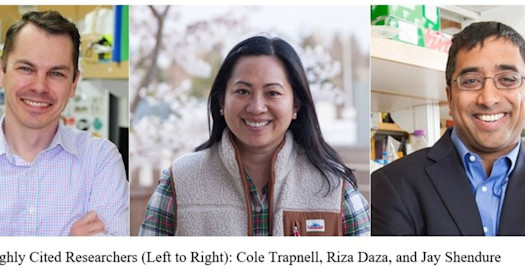 Dr. Autumn York: 'Her sense of humor and resiliency are both really important skills necessary to survive the highs and lows of scientific research'
Dr. Autumn York: 'Her sense of humor and resiliency are both really important skills necessary to survive the highs and lows of scientific research'
“Choices are the hinges of destiny.” Pythagoras, ancient Greek philosopher and mathematician
Autumn York likely was not pondering the gravity of Pythagoras’s words when she quit her job working with children at a YMCA in Boulder, Colorado.
It was 2004; she was an undergraduate at the University of Colorado, aiming to become a high school biology teacher. The Y was far from campus and the hours, as well as commuting by bicycle, made it difficult to take the classes she needed.
The molecular biology major took a position as a lab technician in the chemistry building on the U of C campus. It was convenient to her classes and paid more than the Y.
It was also “a hinge of destiny.”
“That job changed my life,” said York. “It was a new lab, and I received a lot of hands-on training. I soon learned I was pretty good at research, and I enjoyed thinking about complex problems.”
York was mentored by Dr. Dylan Taatjes, Ph.D., the lab’s principal investigator who had hired her. As her thoughts about pursuing a Ph.D. grew bright, the concept of teaching high school biology faded.
“I had no idea what it was like to get Ph.D.,” she said. “no one in my family in Tulsa had experiences like this. I thought research was performed by M.D.s.”
In 2008, York completed her Bachelor of Arts degree Biochemistry (Magna Cum Laude) and B.A. in Molecular, Cellular & Developmental Biology, with a Chemistry Minor. She soon headed to Los Angeles and the campus of UCLA. In 2016, was awarded her Ph.D. in Molecular and Medical Pharmacology in the lab of Steven Bensinger, V.M.D, Ph.D. at the David Geffen School of Medicine.
Next stop on York’s odyssey? A six-plus year layover at Yale University, first as a post-doctoral associate in the Department of Immunobiology, followed by a Hanna H. Gray fellowship with the Howard Hughes Medical Institute. Both were under the supervision of Richard A. Flavell, Ph.D., the renowned English molecular biologist, who uses transgenic and gene-targeted mice to study innate and adaptive immunity.
All of these academic experiences were interesting and rewarding, York said, but for the previous 10 years, her sights had been set on the University of Washington and, specifically, the UW Medicine Department of Immunology. Based on previous collaborations with UW Faculty, including, Dan Stetson, Ph.D. of UW Immunology, and many visits to the Northwest, she was enamored with Seattle and the UW campus. That feeling was enhanced by two former colleagues at Yale who did their undergraduate studies at UW and spoke highly of the Immunology Department.
In the spring of last year, she learned of an open faculty position, submitted an application, and started interviewing, first via Zoom and then in-person. A few months later, she accepted the position of assistant professor and started December 1, 2023.
Selecting York was not a difficult decision, according to Immunology Department Chair Marion Pepper, Ph.D.
“The Immunology faculty was impressed by Autumn's intellect, energy, creativity, and sense of humor,” said Pepper, a BBI member. “We knew she would not only develop a tremendous research program based on her scientific track record, but also be a great colleague.”
York is already working with Michael Gerner, Ph.D., an associate professor in the department, as well as Kevin Urdahl, M.D., Ph.D. with the Seattle Children's Research Institute, to understand how the lipid metabolic properties of immune cells can impact respiratory infections.
“I’m continuing with projects focused on how lipids impact the innate side of the immune system,” York said.
She will further examine the cells within the body that surveille for invading pathogens.
“When innate immune cells sense pathogens, they send out signals that call to the adaptive immune system to mount very specific responses,” York said. “I plan to conduct additional research on how lipid metabolism impacts the adjacent, adaptive immune cells and determine if we can utilize lipid metabolic pathways to regulate adaptive immune responses, as well.”
York’s previous research includes the paper, "IL-10 constrains sphingolipid metabolism to limit inflammation,” published February 21 in Nature. She is the first author; it is one of 15 papers she has published, and another, in which she is a co-first author, is currently under review.
Pepper believes her department’s newest faculty member has “really important skills” to succeed.
“Her sense of humor and resiliency are both really important skills necessary to survive the highs and lows of scientific research,” Pepper said. “She is also community-minded and we are excited to interact with her both scientifically and personally. We are lucky to have her here at UW Immunology.”


